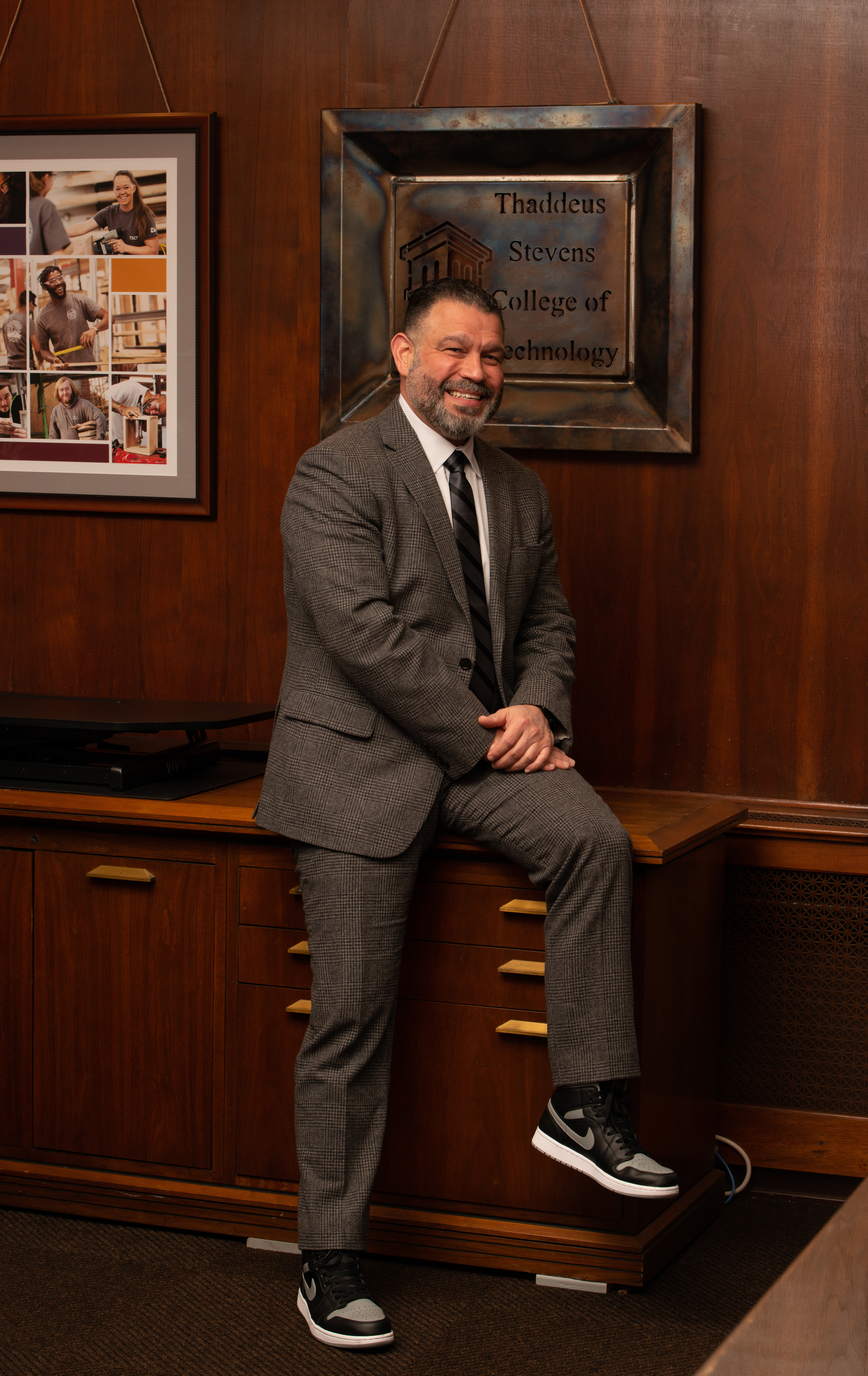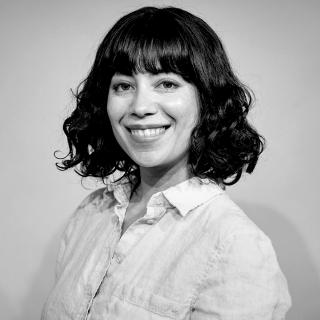
A Q&A with PA's only Latino leading a college
We talked to Pedro Rivera about his passion for education and the importance of representation in the Latino community.
From his office at Thaddeus Steven College of Technology in Lancaster, Pennsylvania, President Pedro Rivera welcomed AL DÍA to talk about his great passion: education.
However, education has not always been his focus or his forte. Like many students in high school and college, Rivera faced severe obstacles in getting good grades, moving to the next year, and excelling in the classroom.
His life took a turn when he entered higher education and was admitted as an engineering student, where he began tutoring other students in mathematics. Seeing how students reacted enthusiastically to learning something new, Rivera understood the power of teaching and the importance of students feeling represented by their teachers and professors. So, Rivera decided to transfer from engineering to education to work as a teacher. Although his mother opposed the decision, Rivera moved forward with his mission.
Rivera managed to complete his bachelor’s degree in education from Pennsylvania State University, a master’s degree in education administration from Cheyney University, a superintendent letter of eligibility from Arcadia University, and is currently completing his doctoral studies at the University of Pennsylvania.
But what makes Rivera a true education leader in PA is his extensive experience in the education system at the local level, serving as Superintendent of the School District of Lancaster and a bilingual teacher, coordinator of English as a Second Language Programs, and Assistant Principal in Kensington High School, Principal of Sheridan Elementary School and Executive Director in Philadelphia school districts. In 2015, he was appointed by former Governor Tom Wolf as Pennsylvania’s Secretary of Education

At the national level, Rivera was honored in 2014 by the White House as a Champion of Change for his efforts to support students through education and appointed as a volunteer member of President Joe Biden’s presidential transition agency review team.
Pedro was named President of Thaddeus Stevens College of Technology on October 1, 2020 by the Board of Trustees where his team has been able to increase student enrolment and add more programs to the institution’s academic curriculum. Currently, almost 20% of the students at Stevens are Latino and their goal is to increase enrollment and retention with a target to graduate 80% of the students who enroll.
Rivera was born in and grew up in the Hunting Park section of Philadelphia. His grandmothers migrated to Philadelphia and New York from Puerto Rico to take jobs in a sewing factory and cleaning homes.
Here’s a Q&A to be part of our conversation with education veteran Pedro Rivera:
Where does your passion for education stem from?
You would think that with my entire career in education, I was an amazing student. But I share that it was hard for me to do well in school. My mother was a single parent and worked a lot, so I spent a lot of time alone or at other family members’ homes. Starting college I didn’t have the supplies needed to be successful in my major, and I wasn’t as good as others who had available resources. But then I enrolled in this humanities class, tutoring students in mathematics, and I remember this young man in his hoodie. And I thought to myself that I wasn’t going to be able to reach this kid, who wasn’t interested. But we started talking and we ended up getting along well. I still remember that look on his face when everything I was explaining clicked for him, and he understood what I was sharing. That’s when I knew: “This is what I want to do”.
As a Philly-born person with Puerto Rican roots, what does bilingualism and biculture mean to you?
My grandmother moved from Puerto Rico to work as a seamstress having a fourth-grade education. My paternal grandmother moved to Philadelphia from the Bronx, New York. She cleaned homes. The funny thing is that they both spoke to us in Spanish, but they wouldn’t let us answer them in Spanish: “You’re not going to speak with an accent”, they told us. So, I grew up knowing Spanish perfectly well, translating, and writing it, but learning to speak English much more fluently. They sacrificed their identity to protect their children. And that, to me, is a great point of sacrifice, love, and pride. Culturally, we have Puerto Rican culture to the core; not a year goes by that our extended family doesn’t get together to make pastelles or ‘coquito.’ We celebrate Christmas Eve as an extended family. That’s one way we’ve taken ownership of our traditions and culture and pass down our Latino heritage from generation to generation , of being Puerto Rican.
RELATED CONTENT
What do you think about the transition of high school students to university? To those who say that many are not prepared to enter university life, what do you think about that?
The first problem is that students are finding the transition to university much more difficult because the skills needed to succeed in higher education are more rigorous than ever. But colleges and universities also have a responsibility to prepare for the transition of these students. When you look at the retention rates of all students in higher education, let alone Latino and African American students, the numbers tell you that there is something systemically wrong. And the choice students have is that you either adapt to it or, as I did, you’re going to think you’re the one with the problem or you’re not good enough. It wasn’t until I started researching and working with students that I realized that our system is designed to be difficult, so leaders like me must work to change that system.
What can universities do to work on this problem?
First, we need to stop seeing students as numbers. We must be aware of who is entering our schools and differentiate based on their needs. Latinos are not monolithic, and the same strategies used with other students are not necessarily going to work. Even before we start thinking about student retention and success, we need to think about the relationships that universities have with them. It may sound corny, but you have to love the students you are serving in order to better meet their needs and culture. We need to evolve and stop thinking of universities as a business.
What is the biggest barrier students currently face in going to university?
It is money. College is very expensive, and student loans are expensive as well. But as higher ed institutions, we need to focus on affordability, retention, and differentiation of students. We need to make sure our kids know who they are and where they come from, so they can create an environment where they can thrive and succeed. And then, we need to maintain a relationship with students after graduation and help them succeed.
What changes have you been able to implement since you’ve been President of Thaddeus?
Obviously, student growth. We have a much more diverse student population than we did when I started, and we’ve also expanded our programs. I mean, just in the last two years, we’ve created three programs and we’re building a new community center where we’re going to have two centers, one for childcare and one for high school students to come and learn about STEM. We bought the building across the street from our campus, and we plan on developing environmental programs so that we are not only good stewards of our community but we are focusing on our environment to help students prepare to improve their world.
What are Pedro Rivera’s future plans?
I love this college; I love what we do. I want to serve and focus more on developing the next generation of leaders and opening the pathways for others to succeed. And that’s how I plan to spend the rest of my career as I focus on other people and, hopefully, allow them to be as fortunate as I have been.
What recommendations can you share with Latino students who may be on the same path you were on as a student?
First, and probably most important, is to understand that who you are is good enough. Your authentic self has allowed you to get to this point. And it is exactly your authentic self that is going to make you successful.
The second thing I recommend is to ask yourself these questions: What do you love doing? Are you good at it? Can you make money doing it? Does the world need it? And if you can answer those four questions, you have found your purpose and career. I believe that if students answer these four questions, they will not only be successful in college, but they will be happy in life.











LEAVE A COMMENT:
Join the discussion! Leave a comment.